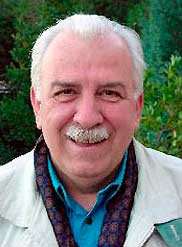In the final days before the Congregation for Bishops ceases its regular work when the Pope’s abdication goes into effect, it seems it wants to close some open files. Yesterday and today we saw a whole raft of appointments in such diverse countries as Colombia, Argentina, Brazil, Tunisia and Congo, as well as in the Holy See’s diplomatic representation in several other countries.
 Standing out are the appointments of Archbishop Ilario Antoniazzi of Tunis and Bishop Miguel Angel Olaverri Arroniz (pictured) of Pointe-Noire in Congo. Tunis is one of northern Africa’s major archdioceses. The previous archbishop, Msgr. Maroun Elias Nimeh Lahham, was called to Jerusalem as an auxiliary bishop in January of last year. Pointe-Noire, then, lost her previous bishop, Msgr. Jean-Claude Makaya Loembe, when he was removed from his office because of mismanagement in March of 2011. He was one of the handful of bishops who lost their jobs under Pope Benedict XVI.
Standing out are the appointments of Archbishop Ilario Antoniazzi of Tunis and Bishop Miguel Angel Olaverri Arroniz (pictured) of Pointe-Noire in Congo. Tunis is one of northern Africa’s major archdioceses. The previous archbishop, Msgr. Maroun Elias Nimeh Lahham, was called to Jerusalem as an auxiliary bishop in January of last year. Pointe-Noire, then, lost her previous bishop, Msgr. Jean-Claude Makaya Loembe, when he was removed from his office because of mismanagement in March of 2011. He was one of the handful of bishops who lost their jobs under Pope Benedict XVI.
Among the reassignments of Apostolic Nuncios (five were appointed or reassigned today) is Msgr. Ettore Balestrero, who was the Undersecretary for the Relations with States at the Secretariat of State until today. He was assigned as Nuncio to Colombia, and some see this as a result of his name having been mentioned in the context of the Vatileaks scandal. Whether that is true is anyone’s guess, of course, but it does stand out.
The Prefect of the Congregation for Bishop, Marc Cardinal Ouellet, is considered a papabile, so perhaps the Congregation is wise to get as much work done in these last days: who knows, she may lose her prefect during the conclave…
Photo credit: Javier Valiente
 At
At  Although many would have us believe otherwise, this does not change much in the Catholic teaching about contraception and the dignity of life. Drugs like the morning after pill, even if they only prevent fertilisation, still can not be used without consequence. Sexual relations are inherently open to life. The willful blocking of the possibility of new life, such as happens with the use of condoms or, indeed, anti-fertilisation pills, is counter to Catholic teaching and sinful.
Although many would have us believe otherwise, this does not change much in the Catholic teaching about contraception and the dignity of life. Drugs like the morning after pill, even if they only prevent fertilisation, still can not be used without consequence. Sexual relations are inherently open to life. The willful blocking of the possibility of new life, such as happens with the use of condoms or, indeed, anti-fertilisation pills, is counter to Catholic teaching and sinful.